Not all foods are what they seem. Some pantry staples come with hidden downsides that aren’t always easy to spot.
Others pack powerful health benefits that go way beyond taste.
This guide helps sort the sneaky culprits from the quiet healers so you can make smarter choices every day.
1. Processed Deli Meats

Often cured with nitrates and nitrites, deli meats can trigger inflammation and increase the risk of heart disease. Their high sodium levels also make them a concern for blood pressure and kidney health.
Preservatives and additives in these meats may affect gut balance, leading to long-term digestive issues when consumed regularly.
2. Margarine

Created as a butter substitute, margarine is often loaded with trans fats that raise bad cholesterol. These fats linger in the body longer and can damage blood vessels over time.
Some brands now use palm oil instead, which has its own health concerns and questionable environmental impact.
3. Microwave Popcorn

The lining of microwave popcorn bags often contains perfluorinated compounds linked to cancer and hormone disruption. Artificial butter flavorings may also harm lung tissue when inhaled during popping.
While the corn itself isn’t dangerous, the chemical packaging and additives turn this snack into a stealthy risk.
4. Diet Sodas
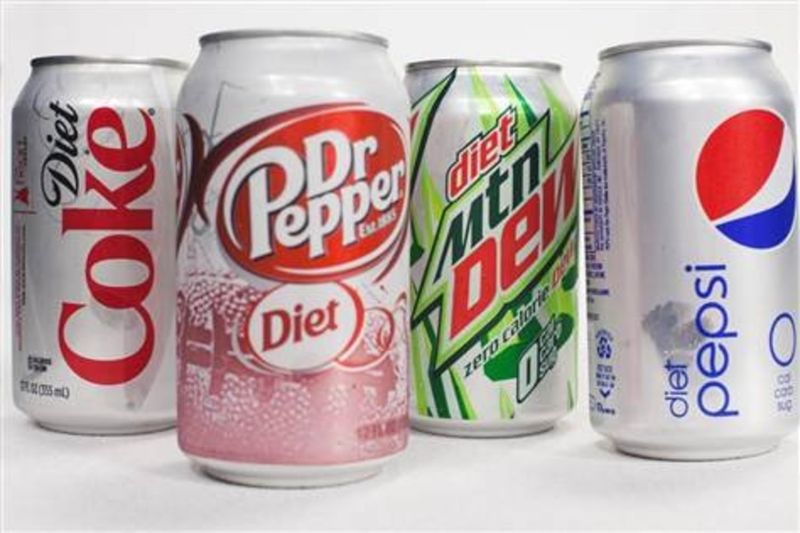
Marketed as healthier alternatives, diet sodas contain artificial sweeteners that may disrupt insulin response. Some studies suggest a link to increased cravings and weight gain.
The acidic nature of these drinks can also erode tooth enamel and alter gut microbiota in harmful ways.
5. White Bread

Refined white flour causes rapid spikes in blood sugar, followed by crashes that leave you hungry again. It’s stripped of fiber, vitamins, and minerals during processing.
Regular consumption can contribute to weight gain, insulin resistance, and a higher risk of type 2 diabetes.
6. Artificial Sweeteners

Used in everything from gum to protein bars, these chemical substitutes may confuse the body’s natural satiety signals. Long-term use has been linked to altered gut bacteria and glucose intolerance.
Though calorie-free, they may still trigger cravings for sweet foods and promote overconsumption.
7. Canned Soup

Often high in sodium, canned soups can contribute to bloating, dehydration, and high blood pressure. Some cans also contain BPA, a chemical that may disrupt hormones.
Even “healthy” labels often mask added sugars and preservatives designed to extend shelf life.
8. Non-Dairy Coffee Creamers
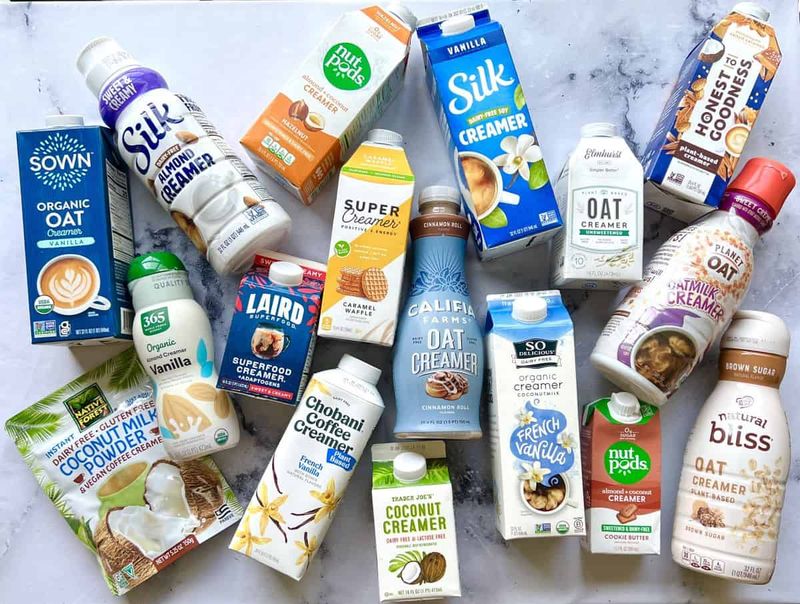
These creamers typically rely on hydrogenated oils and synthetic flavors to mimic cream’s texture. Many also contain corn syrup solids, which spike blood sugar.
Colorings and additives used for shelf stability may be linked to metabolic slowdowns and inflammation.
9. Packaged Instant Noodles

Instant noodles are usually fried before packaging, increasing their fat content. The seasoning packets are packed with sodium, MSG, and preservatives.
Lacking protein and fiber, they provide empty calories that may strain digestion and encourage poor eating habits.
10. Frozen Breaded Chicken Patties

These often include low-quality meat trimmings, preservatives, and flavor enhancers. The breading absorbs oil during frying, increasing trans fat content.
Frequent consumption may raise cholesterol levels and offer little nutritional value compared to fresh, whole cuts.
11. Garlic

Garlic contains allicin, a sulfur compound with potent anti-inflammatory and antimicrobial effects. It has been used for centuries in traditional healing.
Raw or lightly cooked garlic can support heart health, boost immunity, and help regulate cholesterol levels.
12. Ginger

This root is rich in gingerol, a compound known for easing nausea and aiding digestion. It also helps soothe muscle pain and reduce swelling.
Used in teas or grated fresh, ginger warms the body and can support circulation during cold months.
13. Blueberries
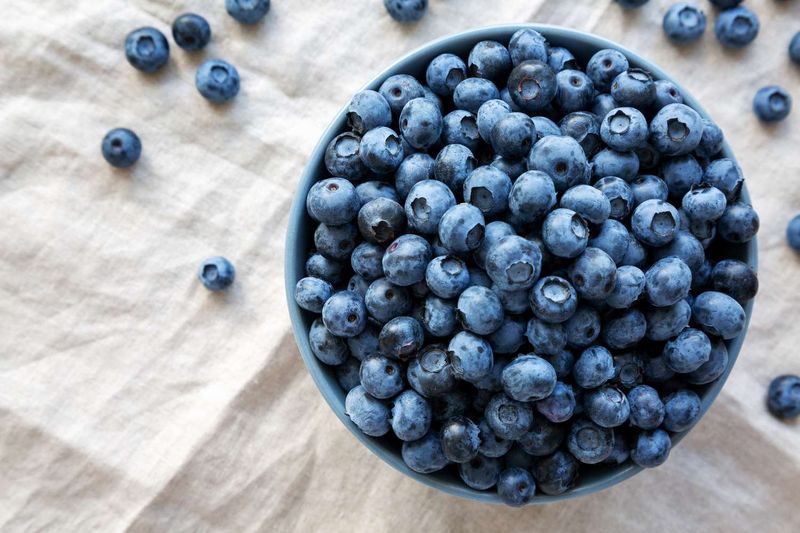
These berries are bursting with anthocyanins, which protect cells from oxidative stress. Their deep color signals high antioxidant activity.
Blueberries may improve memory, support heart health, and help reduce inflammation throughout the body.
14. Spinach

Packed with iron, folate, and magnesium, spinach strengthens red blood cell production and supports muscle function. It’s also low in calories and high in fiber.
Regular intake may improve bone health and reduce oxidative damage linked to aging and disease.
15. Fermented Kimchi

This Korean staple teems with probiotics that promote a balanced gut microbiome. Its fermentation process enhances vitamin and enzyme content.
Kimchi’s spicy, tangy flavor is a natural appetite stimulant and can aid in digestive health and immunity.
16. Turmeric

Curcumin, the pigment in turmeric, has strong anti-inflammatory and antioxidant properties. It’s been studied for its role in fighting chronic diseases.
Pairing turmeric with black pepper boosts absorption and deepens its healing effects in the body.
17. Sweet Potatoes

Naturally sweet and fiber-rich, these roots are loaded with beta-carotene, a precursor to vitamin A. Their complex carbs digest slowly, providing steady energy.
They support eye health, immunity, and may lower blood sugar when eaten in whole, roasted form.
18. Green Tea

Rich in catechins, green tea enhances metabolism and protects cells from damage. Its gentle caffeine content boosts alertness without jitters.
Drinking it regularly may support heart health, lower cholesterol, and promote calm focus during stressful days.
19. Chia Seeds
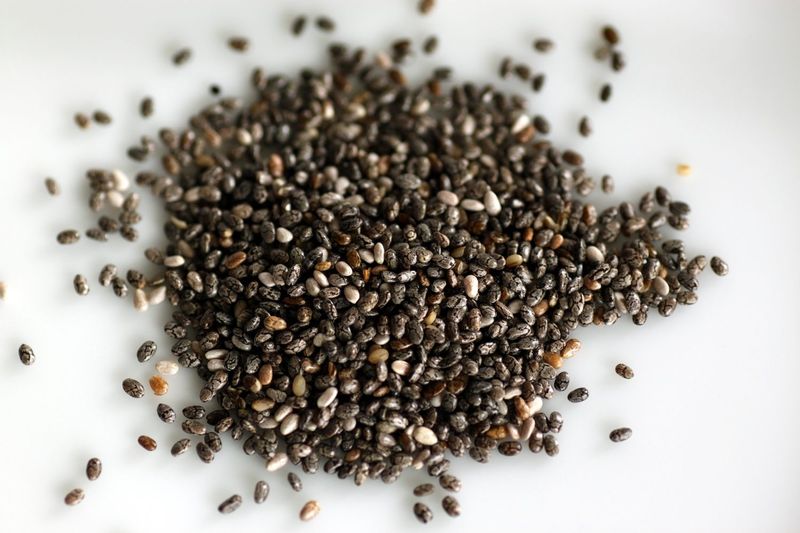
These tiny seeds swell in liquid, forming a fiber-rich gel that slows digestion and balances blood sugar. They’re packed with omega-3s and plant protein.
Regular use may support heart health, curb appetite, and improve gut function thanks to their soluble fiber.
20. Sauerkraut
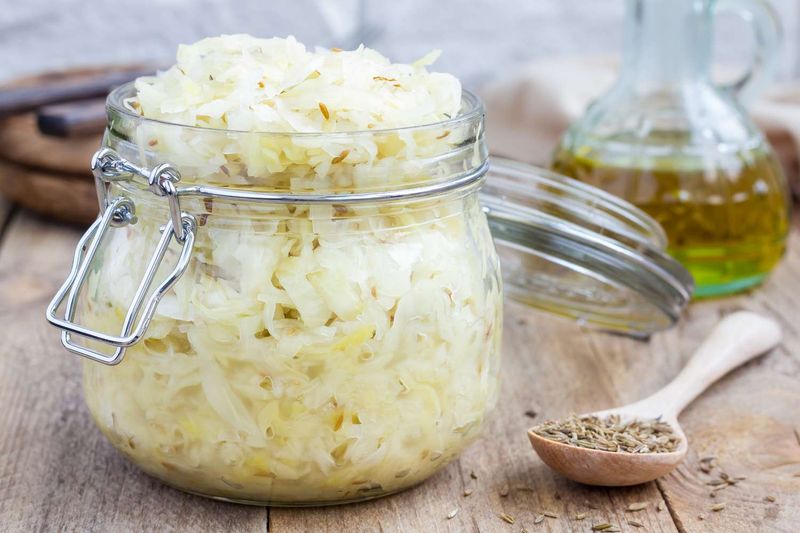
Fermented cabbage develops beneficial bacteria that nurture digestive health. It’s also a natural source of vitamin C and K.
The tangy crunch of sauerkraut livens up dishes while offering immune support and gentle detoxification through probiotic action.

